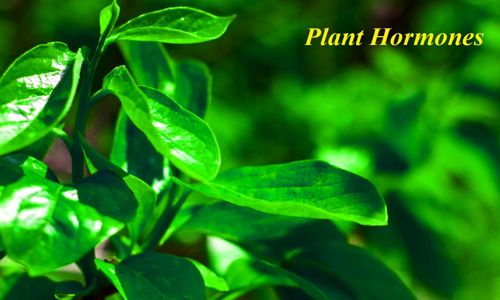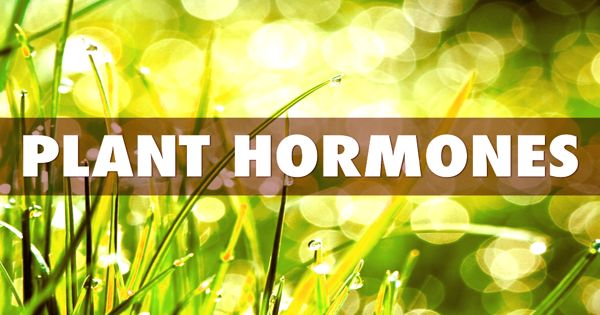Plant hormones are chemical plants use for communication, coordination, and development between their many cells. They also are known as phytohormones, are signal molecules, produced within plants that occur in extremely low concentrations. They are among the most important biochemicals affecting plant growth and yield production under different conditions, including stress. The signaling molecules play an essential role in the control of plant growth and development.
Plant Hormones play an important role as a signaling molecule and induce various plant stress responses in the perception, transduction, and induction phases of the stress response.
Plant hormones control all aspects of plant growth and development, from embryogenesis, the regulation of organ size, pathogen defense, stress tolerance, and reproductive development. Plant hormones include auxin, abscisic acid, ethylene, gibberellins, cytokinins, salicylic acid, strigolactones, brassinosteroids, and nitrous (nitric) oxide.
A hormone is any chemical produced in one part of the body that has a target elsewhere in the body. Unlike in animals (in which hormone production is restricted to specialized glands), each plant cell is capable of producing hormones. They are essential regulators of plant development beginning with seed germination and culminating in whole-plant senescence. Went and Thimann coined the term “phytohormone” and used it in the title of their 1937 book.

Plants have five classes of hormones –
- Auxins promote stem elongation, inhibit the growth of lateral buds (maintains apical dominance). They are produced in the stem, buds, and root tips.
- Gibberellins promote stem elongation. They are not produced in stem tip.
- Cytokinins promote cell division. They are produced in growing areas, such as meristems at the tip of the shoot.
- Abscisic Acid promotes seed dormancy by inhibiting cell growth. It is also involved in the opening and closing of stomata as leaves wilt.
- Ethylene is a gas produced by ripe fruits. Ethylene is used to ripen crops at the same time.
Phytohormones occur across the plant kingdom, and even in algae, where they have similar functions to those seen in higher plants. They always play an important role as a signaling molecule and induce various plant stress responses in the perception, transduction, and induction phases of the stress response.
Some phytohormones also occur in microorganisms, such as unicellular fungi and bacteria, however, in these cases, they do not play a hormonal role and can better be regarded as secondary metabolites. Plant hormones are a group of naturally occurring, organic substances that influence physiological processes at low concentrations.
















